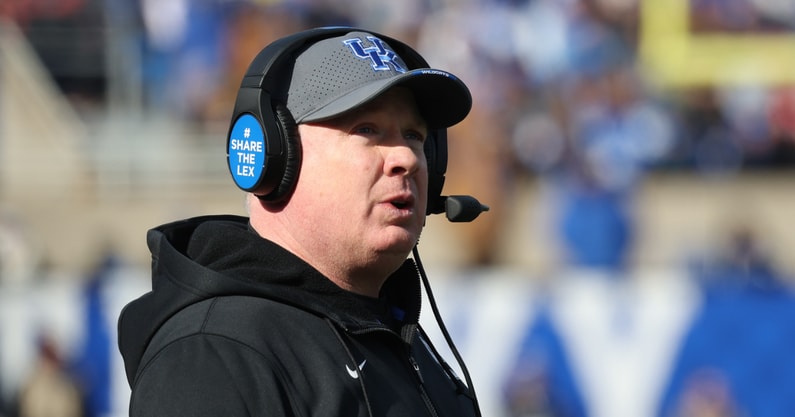
Kentucky head football coach Mark Stoops has always taken pride in building a competitive program in a conference as formidable as the SEC. Now, as the SEC and college football at large transition into an era of player revenue-sharing and athlete compensation, Stoops believes his program is well-positioned to not just survive—but to thrive.
Speaking candidly during SEC Media Days and in recent interviews, Stoops acknowledged the challenges of competing in what has become the most resource-rich and talent-loaded league in college sports. However, he was equally emphatic that Kentucky is not backing down from the changing landscape, especially as discussions about direct revenue-sharing with student-athletes continue to gain momentum.
“People can keep talking about the blue bloods and the powerhouses,” Stoops said. “But Kentucky isn’t going to be left behind. We’ve invested, we’ve adapted, and we’ll continue to compete.”
The concept of revenue-sharing—distributing a portion of television, sponsorship, and conference earnings directly to student-athletes—is no longer a hypothetical. With the NCAA’s model under pressure from lawsuits and federal legislation, major conferences like the SEC are already making strategic plans. While some schools have voiced concern over how to finance such changes, Stoops seems to see it as a potential equalizer rather than a threat.
Kentucky has been steadily climbing the SEC ranks under Stoops’ leadership. Since his arrival in 2013, he has guided the Wildcats to multiple winning seasons, bowl victories, and landmark wins over SEC powerhouses. Facilities have been upgraded, recruiting has improved, and fan support has surged. All of this, Stoops argues, reflects the school’s readiness for the next chapter of college football.
“We’ve got state-of-the-art facilities, strong administrative support, and a fanbase that wants to win,” he said. “That’s a solid foundation to build on. If revenue-sharing becomes part of the game, we’re going to find a way to make it work—because we want to compete at the highest level.”
One key component of Kentucky’s approach will likely be its embrace of NIL (Name, Image, Likeness) opportunities and a potential future collective bargaining system. Kentucky already has collectives and boosters who are active in supporting athletes through NIL deals. Stoops made it clear that the school’s willingness to invest in its players—both on and off the field—will be critical moving forward.
“Kids aren’t just coming to play football anymore,” Stoops said. “They’re looking at how schools are going to take care of them—financially, mentally, academically. And we take all that seriously. Our goal is to give them every advantage we can.”
Critics may point to Kentucky’s traditionally basketball-centric identity as a hurdle in building long-term football success. But Stoops sees it differently. He believes the spotlight that comes from being at a school with a rich athletic tradition benefits the football program just as much as it does basketball.
“Look, we’re all proud of what Coach Cal and the basketball team have done,” he said. “That success only raises the profile of our entire athletics department. When football is winning too, it becomes a win-win.”
Kentucky’s athletic department has already begun preparing for a more professionalized college sports model. Athletic Director Mitch Barnhart, one of the longest-serving ADs in the country, has been active in national discussions around college athletics reform. That stability in leadership gives Stoops additional confidence in Kentucky’s ability to adapt.
“There are going to be bumps in the road,” Stoops admitted. “This is uncharted territory in many ways. But we’ve got the right people and the right mindset. We’re going to compete. We’re not going to be looking for excuses.”
For Stoops, the conversation around revenue-sharing is just another evolution in a sport that has constantly changed over his decades of coaching. From the rise of spread offenses to the transfer portal and NIL, adaptability has become essential. And Kentucky, once seen as a football afterthought in the SEC, is increasingly being






